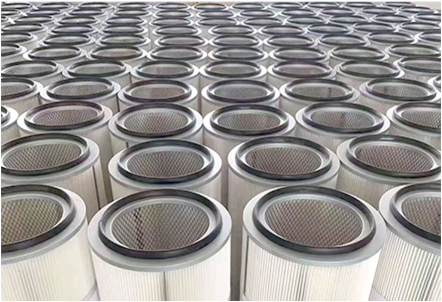 Tel:
+8615930870079
Tel:
+8615930870079
Oct . 19, 2024 05:22 Back to list
Choosing the Right Cartridge Oil Filter for Your Vehicle's Maintenance Needs
Understanding Cartridge Oil Filters Importance and Maintenance
Cartridge oil filters play a crucial role in the longevity and efficiency of an engine, serving as the first line of defense against contaminants that can cause wear and tear. In essence, these filters are designed to trap impurities in the engine oil, including dirt, metal particles, and other debris that can accumulate over time. As regular oil changes are essential for any vehicle's health, understanding the function and maintenance of cartridge oil filters becomes equally important.
What is a Cartridge Oil Filter?
A cartridge oil filter consists of a cylindrical container filled with filtering media. This media can be made from various materials, such as paper or synthetic fibers, which effectively capture particulates while allowing oil to flow freely. Unlike traditional spin-on filters, cartridge oil filters often require a separate housing or can be built directly into the engine block, facilitating easier access for replacement during routine maintenance.
Functionality and Benefits
The primary function of an oil filter—and specifically a cartridge oil filter—is to maintain the cleanliness of engine oil. Clean oil is vital as it lubricates engine components, reduces friction, and helps dissipate heat. Contaminated oil, on the other hand, can lead to increased engine wear, overheating, and potentially severe engine damage. By regularly replacing the cartridge oil filter, vehicle owners can ensure that contaminants are removed, significantly extending the lifespan of the engine.
One of the key benefits of using cartridge oil filters is their environmental impact. Many cartridge filters are designed to be recyclable, which helps reduce waste compared to traditional filters that may be discarded without consideration for recycling. Additionally, the structural integrity of cartridge filters often allows for more efficient filtration, resulting in better overall performance.
When to Change Your Cartridge Oil Filter
Determining when to change your cartridge oil filter can depend on several factors, including the type of vehicle, driving conditions, and the oil being used. However, a common recommendation is to replace the oil filter every time you change the engine oil, typically every 3,000 to 7,500 miles, depending on the manufacturer's guidance. More frequent changes may be necessary for vehicles subjected to severe conditions, such as high temperatures, heavy loads, or stop-and-go traffic.
How to Replace a Cartridge Oil Filter
cartridge oil filter

Replacing a cartridge oil filter is a relatively straightforward process that can be done at home with some basic tools. Here are the steps involved
1. Gather Your Tools You will need a wrench or socket set, an oil filter wrench (if necessary), new oil, and a replacement cartridge oil filter.
2. Locate the Filter Consult your vehicle's owner manual to find the location of the oil filter. It may be easier to access from below the car, so consider elevating the vehicle safely.
3. Drain the Oil Before removing the old oil filter, drain the engine oil completely. This can be done by removing the drain plug and allowing the oil to flow into a suitable container.
4. Remove the Old Filter Use an oil filter wrench if the filter is stuck. Be prepared for residual oil to spill out as you remove the filter.
5. Install the New Filter Apply a bit of new oil to the rubber gasket of the new filter to ensure a proper seal. Screw the filter in place, tightening it according to the manufacturer's specifications.
6. Refill the Engine Oil Replace the drain plug and refill the engine with fresh oil.
7. Check for Leaks Start the engine and let it run for a few minutes. Check for any leaks around the filter.
Conclusion
Cartridge oil filters are a vital component of maintaining a clean and functional engine. Regular replacement of these filters, along with timely oil changes, can protect your engine from unnecessary damage and ensure optimal performance. Keeping an eye on your vehicle’s maintenance schedule will not only save you money in the long run but also contribute to a smoother, more efficient ride. With proper attention and care, your vehicle can enjoy a longer lifespan and better performance, all thanks to the humble cartridge oil filter.
-
Types and Applications of Air Filtration CartridgesNewsJul.28,2025
-
The Role of Gas Turbine FiltersNewsJul.28,2025
-
Mastering Air Filter Cartridge UseNewsJul.28,2025
-
Advanced Turbine Filters for Modern Gas TurbinesNewsJul.28,2025
-
Cellulose Air Filter Cartridge Advantages in Dust FiltrationNewsJul.28,2025
-
Cellulose Filters for Air Particle ReductionNewsJul.28,2025

 Email:
Email:





